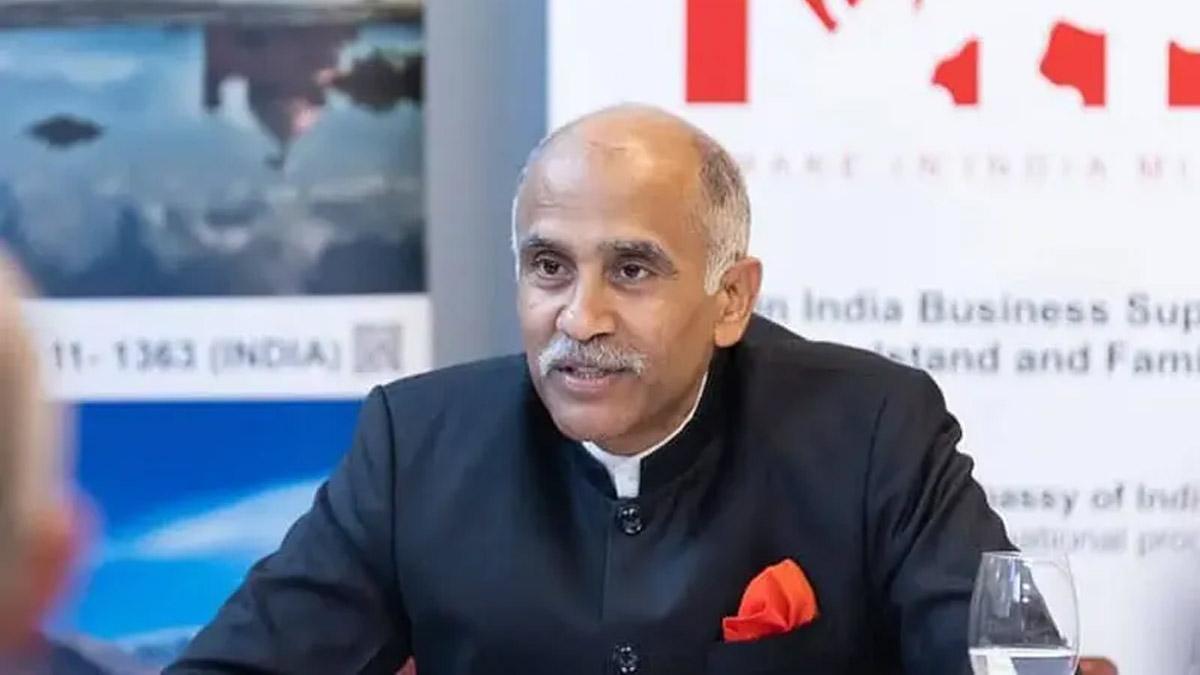India warned that a 'lowest common denominator' approach to reforming the Security Council could scupper real major change.
The "lowest common denominator" in reforming the Council should not allow "mere tinkering" of the system to masquerade as a major reform, Permanent Representative P. Harish told the General Assembly on Monday.
Such a consolidated model based on 'convergences' should not lead to a race to the bottom tracing the lowest common denominator, he said.
"There is every danger that this search for a lowest common denominator would be used as a smokescreen for the attempt of mere tinkering with the existing framework of the UN Security Council and terming it a major reform," he said.
The Intergovernmental Negotiations process for Council reforms has long been deadlocked, not because of a general problem or disagreement with the text-based negotiations format itself but on account of opposition from a number of countries.
The way out of the logjam, one suggested, is to draft a model of a reformed Council in light of the inputs made by member countries culminating in the adoption of a negotiating text on which the discussions will continue.
HARISH said: While we work hard for real tangible progress in the IGN, including on behalf of the development of a new 'model' of reform of the Security Council as a precursor to text-based negotiations, we caution.
He warned that if this results in little more than superficial changes, "this could indefinitely postpone significant elements, such as expansion in the permanent category and addressing under-representation of Asia, Africa, Latin America and the Caribbean, to a distant future. "
Most other countries, however opposed to expansions to the permanent membership of the Council, favour longer terms of some elected seats.
It comprises a group opposed to adding permanent members, known as Uniting for Consensus, and for which Pakistan is part. It is led by Italy.
Speaking for the group, Italy's Permanent Representative, Maurizio Massari said: "We oppose more permanent members but propose longer-term, re-electable seats, with a flexibility to accommodate the positions of other negotiating groups and the unique dynamics of each regional group.".
In a "least common denominator" scenario, there is the risk that presenting the longer-term membership as being more widely supported — or convergent — may promote that as an immediate solution and delay any move towards expanding permanent membership.
"Convergence is not consensus," Harish said.
"As a Global South citizen, we believe that 'representation' stands as the unassailable prerequisite for both 'legitimacy' and 'effectiveness' of not just the Council, but the UN as a whole," he added.
According to him, while the basic structure of the Council is stuck in the post-World II era with five winners in that war monopolising the permanent membership with veto powers in the Council, younger organisations have been "much more adaptive and nimbler".
He cited the example of G20, the group of major industrialised and emerging economies that under India's presidency welcomed the African Union as a member last year.
"The Security Council," he said, "has too often found itself paralysed by the geopolitical realities of today, which have evolved far beyond the realm of that of 1945."
A more representative Council is crucial in today's interdependent world, he said, and "that sentiment was also clearly reflected in the Pact for the Future" outlining the way forward for the UN as it turns 80 next year that was adopted by the world leaders at their September summit.
India is one of the four countries-Germany, Brazil and Japan-being part of the G4 which actively advocates Council reforms and simultaneously lays claims to permanent membership.
Speaking on behalf of the four nations, Germany's Permanent Representative Antje Leendertse said, "More than 140 participants in this year's General Debate called for UN reform, surpassing last year's number once again.".
This number is over the threshold of two thirds of the General Assembly (membership) and shows there clearly is clear and increasing momentum for the reform of the Council, " she said.
"We are in favor of discussing this consolidated model, reflecting the positions expressed by the majority of Member States, as soon as possible, " she added.
Japan's Permanent Representative Yamazaki Kazuyuki said, "To achieve substantial progress towards text-based negotiations, we are eager to see the submission of more models, especially from Africa, so as to forge a consolidated model in the current IGN cycle."


















